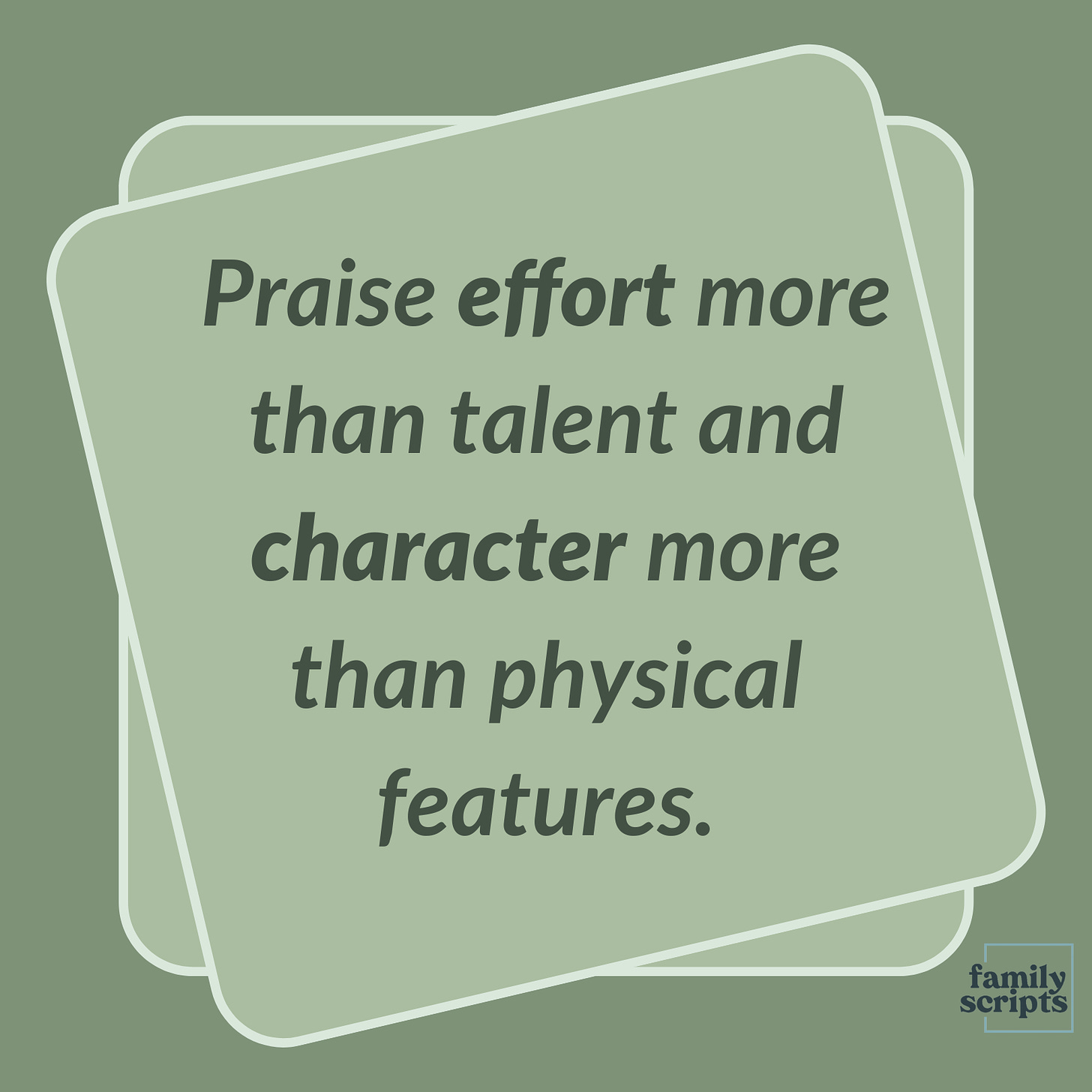Hello! This month, we are focusing on Attentiveness, so today let’s talk about noticing—and applauding—your kids’ efforts!
Believing Your Words Matter
Let’s dig a little into our own childhoods:
What are some encouraging things someone told you when you were a kid that still mean a lot to you today?
What are some discouraging things someone told you where you were a kid that hurt you for a long time?
What are some things someone never told you as a kid that has affected you by its lack?
Thinking through these things is a reminder that your words (and even the absence of them) carry a lot of weight.
This is a sobering but wonderful privilege. You get to put strong wind in the sails of the people you love most. You get to pave the runway and help your kids fly.
“You’re So Smart” vs. “You’re Working So Hard!”
Keep this in mind when encouraging your kids: praise effort more than talent and character more than physical features.
When you say “Wow, you’re really good at solving puzzles! You’re so smart!” your child will feel special and affirmed, yes, and there’s a ton of value in noticing your child’s raw talent and helping them develop it!
But if we mostly emphasize what comes naturally to our kids, they might despair and give up when they encounter things that are much harder for them, like math homework: “I’m not good at this. I’m just not smart enough.”
Alternative: “Wow, look at how much perseverance you’re showing with that puzzle! You’re working so hard on this!” Your child will feel encouraged not because they’re endowed with some magical gift for puzzles, but because they made a great effort. Later on when they’re struggling in math, you can remind them, “I know that you can do hard things. Let’s keep trying.”
This applies to physical appearance, too. Yes, there’s much value in bringing attention to your daughter’s beautiful eyes or your son’s cool style. But since physical beauty is subjective, not something we can control, and it doesn’t last forever, it’s really not something we need to emphasize the most. (If a little girl is known for her gorgeous blond hair, what happens to her sense of identity when it darkens to brown? Or if a preteen’s identity is around her “cuteness” and petite frame, what happens when her body changes?)
Instead, we can say things like:
“Oh, Zoe, that was so beautiful how you made friends with that girl at the playground. Did you learn her name?”
“Ben, I noticed that you put Abby’s plate in the dishwasher when she forgot. That was very kind and thoughtful of you.”
“Ellie, thank you for being honest about what happened. That was very brave of you to tell the truth.”
May you heal from the hurts of words said (or unsaid) in your own childhood.
May you pay more attention than ever to the encouragement and correction that your children need.
May you affirm them with their future sense of identity in mind.
May you find silly ways to show your kids that you seriously notice their efforts and struggles.
May you help your kids feel seen and known.
May your kids be teachable and receive your guidance with thankful hearts.
And may your kids be self-confident and intrinsically motivated…whether others praise them or not! 🙌🏼
Warmly,
Hope and the Family Scripts Team
P.S. Sorry this post came out a day late! As I write, we’re finishing up an awesome road trip. We take family adventures pretty seriously around here, so stay tuned for a post with some tips and sweet photos 😉







Love this soo much! I could immediately answer each of those questions you asked about the adult comments that lifted and shrunk my feelings so worth as a child. They stay with you forever!
Thank you for also being so intentional with your words. Well spoken insight. I appreciate you!